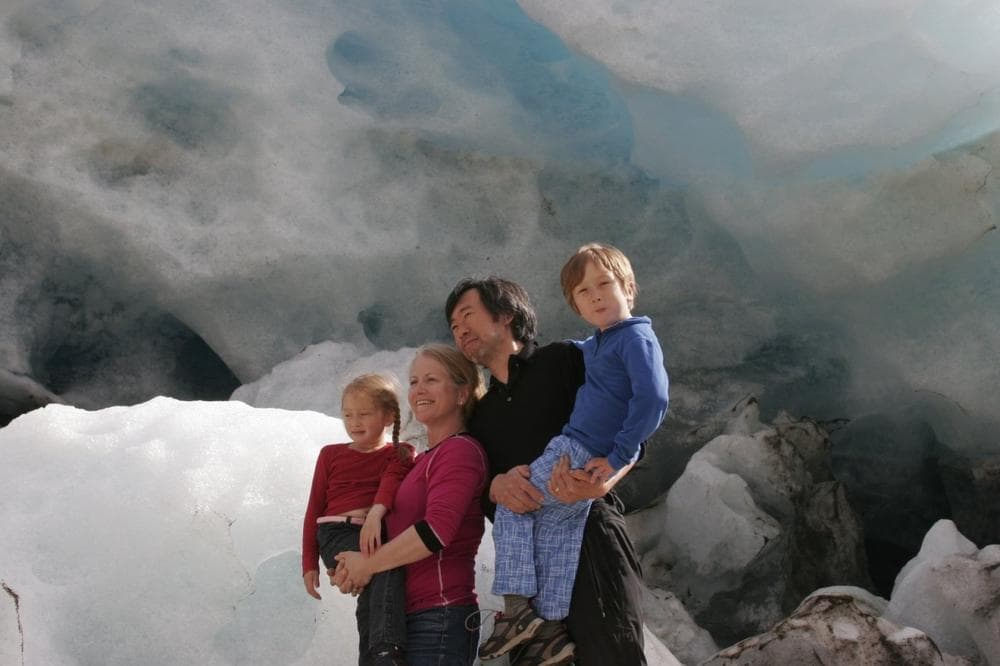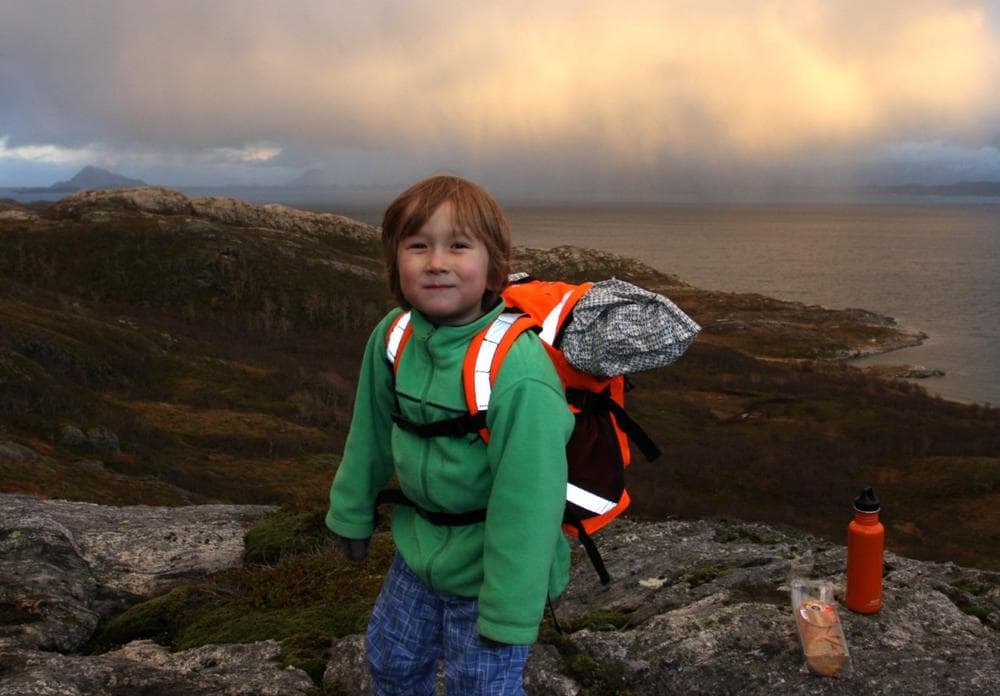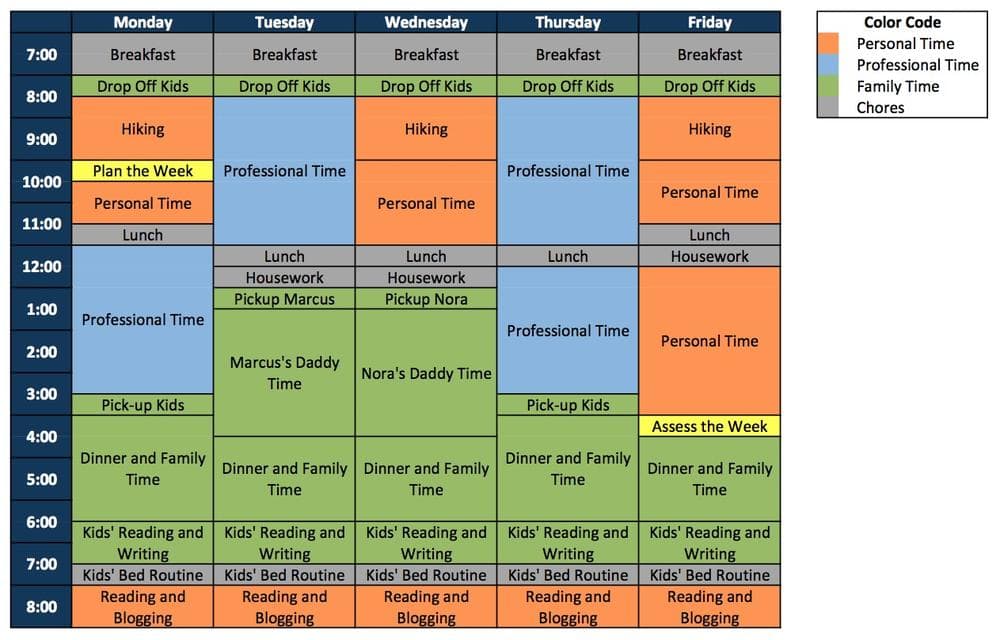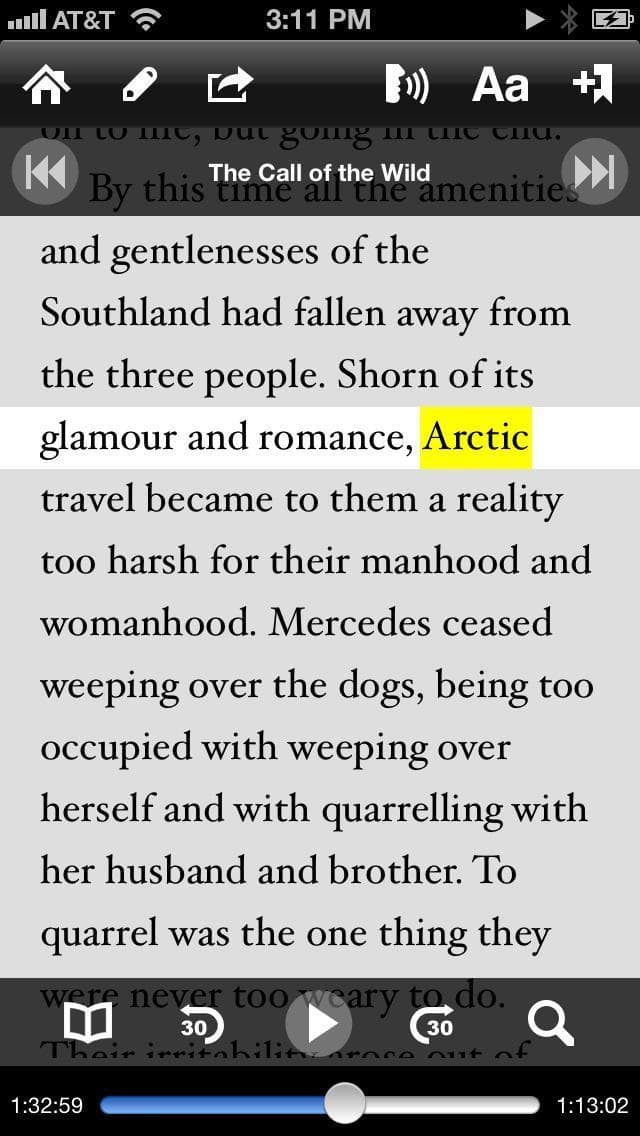Advertisement
Boston Family Finds Riches In Arctic Adventure
ResumeImagine retiring from your job — but only for a year. That's how Winston Chen and his family came to live on an island north of the Arctic Circle.
Chen got the idea from watching a TED talk by designer Stefan Sagmeister.
"He presented this absolutely irresistible idea," Chen remembered of the initial inspiration. "He said, 'Why don’t we take five years out of retirement and spread them throughout your working life?' "
In the talk, Sagmeister claims, "The work that flows out of this year flows back into the company and into society at large, rather than just benefiting a grandchild or two."
Chen told the idea to his wife, Kristin Botnen. Leaving work, though, at a time when jobs don’t exactly grow on trees? That's hard.
"You know, I wouldn't say we are perfectly conventional," Chen said. "But we’re not totally crazy either. So we feel the gravitational pull of what you should do as well as anybody."

Two summers ago, they broke that gravitational pull. Chen quit his job as chief technology officer at Kalido, a Burlington, Mass., company that builds software systems for big corporations.
Botnen, who'd been staying home as a mom, took a job as a schoolteacher in a place desperate to have one — a place about 3,500 miles from Boston, east and way north, past Greenland, beyond Iceland. The family headed to Rødøy, a small granite island jutting from the Norwegian Sea north of the Arctic Circle.
Botnen was born in Norway, so that made it easier. But it wasn't about returning home, or fleeing Boston, either.
"For us, this was not an escape," Botnen said. "We really liked our lives. But we still wanted a year where we could just do something completely different."

It was completely different. They used the daylight that burns until the wee hours of the morning that far north to explore the island of about 180 residents. Winston and Kristin and their kids Marcus and Nora hiked and camped. They discovered beaches so clean and the water so clear, they looked tropical — except for the really cold water.
And they went out on the water to fish for the big cod that swim down from even further north in the Barents Sea.
They hung the cod to dry outside the kitchen of their hilltop home. They made chips by frying fish skin. They picked berries that flourished under the long days of sunlight. And they plucked eggs from seagull nests to fry for breakfast.
It was wild. It was pristine. And it got dark.
Those very long days turned into very short ones. During the deep Arctic winter, the horizon held the sun down for months.
"The Northern Lights are the only consolation for the Arctic winter, which is otherwise dark and stormy and cold," Chen said.
Botnen added, "I don’t think the cold got any of us. But the darkness — I think that could make any stable soul a little bit shaky."

To keep their souls stable, Chen mapped out an hourly schedule in a spreadsheet, color-coded for personal and professional times, chores and family time. He dedicated an afternoon to each child. Tuesdays were for Marcus, who was 6 years old; Wednesdays for Nora, who was 4. For the first time, Chen said, it seemed like he had the time to do what he wanted.
"I had a list of things that I wanted to do," Chen recalled. "I had oil painting, photography, blogging, learning Norwegian, learning how to play the ukulele, reading long books that I haven’t had time to read."
And he also taught himself something new that changed his fortunes: He wrote an iPhone application that reads text out loud.
"Part of that was occupying my time when it got dark," he remembered, calling it just a project. "So I wrote it without knowing that it would see the light of day."
It did see the light of day when Chen posted it on Apple's app store under the name Voice Dream. People started buying it, including visually impaired people, commuters and also teachers who got it for their dyslexic students.
At $10 a piece, the app is now selling more than 500 copies per week.

Its commercial success flies in the face of the dogma of the Boston tech sector, which is all about the cluster: bringing smart people together in open floor plans. Chen did the opposite — something almost biblical — by withdrawing alone to a remote wilderness, searching. Chen said he never would have created the app without his arctic adventure.
"Living in a place where you’re not distracted by the day-to-day," Chen reflected, "where you have time to think, where you’re not in a hurry. Then with all these ideas floating around, it becomes as simple as: What do you keep going back to?"
He kept going back to Voice Dream. And after a year above the Arctic Circle, the family went back to Boston.
At home in Arlington, the family has been living off the income from the app. Voice Dream works in more than two dozen languages. Botnen said the year was a dream, but not because of the app.
"It's hard to measure success based on the end-product," Botnen said. "Because the process, and the year that we had, really was a good one."
A retirement year inserted into their working ones, it was a year that helped them find new riches, both personal and professional.
To read more and see additional photos, visit Winston Chen's blog, Arctic Dream: Our Family's One-Year Adventure Living on an Arctic Island.
